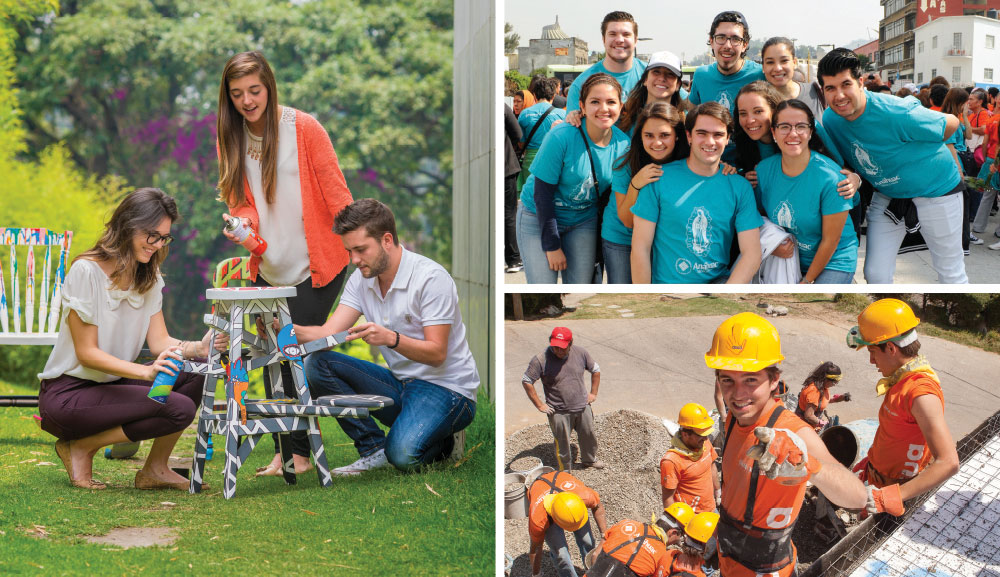
1 A vision motivated by the dignity and centrality of the human person
The personal dignity lies not in possession or production, but in the person's self. Every human being is a creature of God, capable of knowing the truth and freely seeking the good, and is destined to achieve his or her fullness in Jesus Christ. Personal dignity arises from the fact that all social life has the human being as its subject and tends towards the integral good as its end.
2 A profoundly human and social vision of the professions
Professional work, in addition to being a means to develop one's own gifts and potentialities and to meet family needs with dignity, must contribute to the common good of the society in which one lives.
3 A critical view of cultural development
Every epoch in history is, in a particular sense, the result of a long cultural evolution. To critically understand this evolution and how it has marked its time and culture, with its positive and negative aspects, allows people to insert themselves better in their own environment and work more efficiently towards transcendental goals.
4 An ultimate meaning of life itself
Each human being has been created to love and reach God, and for this reason, material goods, although necessary, cannot fully satisfy his or her longing for happiness. This conviction should lead the professionals to devote themselves responsibly to their families, work and other activities, but without forgetting that these pursuits are means to the love of God and neighbor.
5 A profound conviction that human reason is capable of knowing reality
The possibility of science, sincerity in family and social relations, and the very universal validity of moral principles depend on the fact that human reason is capable of knowing reality itself. Thus, the professional needs to reach this conviction and develop a scientific way of reasoning, namely, objective, reasoned and systematic.
6 Knowledge and a convinced experience of one's own faith
Faith in God, whose definitive revelation is Christ, discovers the ultimate meaning of human life. By itself, knowing and living the values of the Gospel not only do not alienate man, but rather humanize him by encouraging him to overcome his selfishness with love for God and others.
7 A capacity for influence and leadership
Societies move in the direction leaders take them. Professionals who graduate from our universities need to develop leadership skills to influence family life, work structures and the sociocultural environment itself with the values of Christian humanism.
8 A solid moral formation
Science and technology only make sense if they are at the service of man, his life in society and his eternal destiny. And this is achieved whenever science and technology are developed by people with a straight moral conscience. It is not enough, therefore, to train professionals with good skills and technical preparation; it is necessary to provide them as well with a solid ethical base.
9 An excellent professional preparation
The professional preparation that students receive must be of high scientific quality, stay up-to-date with advances in science in various fields, and train them to successfully face the challenges that society presents in each field of endeavor. It should also encourage the desire for lifelong learning.
10 Effective communication skills
Communication is essential for the professional to develop as a human person, in his or her family, social and work life. By itself, university preparation should also enhance the ability to communicate, verbally and in writing, with truth, respect for others and expressive effectiveness.
